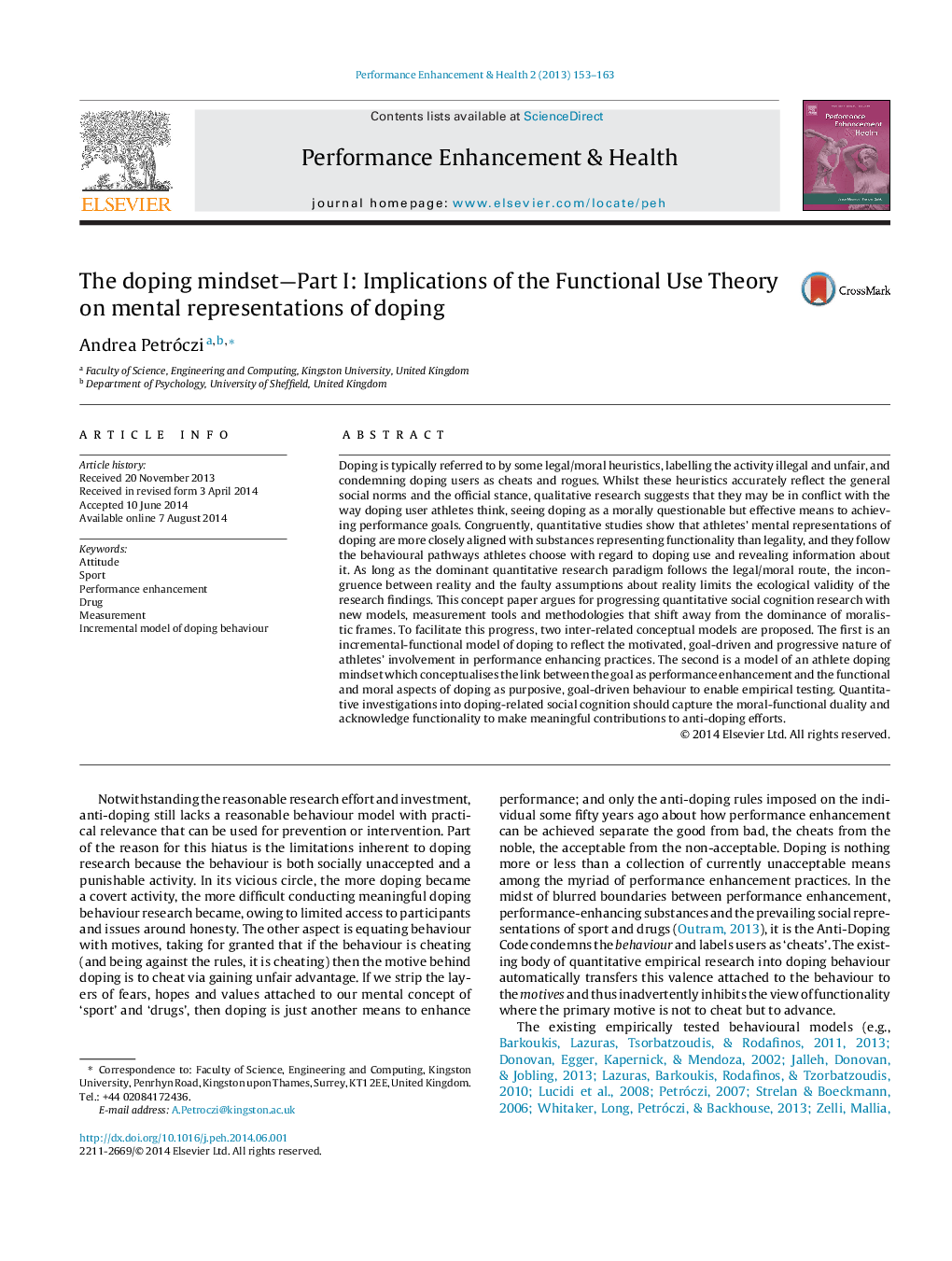| کد مقاله | کد نشریه | سال انتشار | مقاله انگلیسی | نسخه تمام متن |
|---|---|---|---|---|
| 889598 | 913957 | 2013 | 11 صفحه PDF | دانلود رایگان |
• Imposing legal/moral heuristics limits social cognition research in doping
• Anti-doping needs to distinguish between inadvertent doping and purposive behaviour
• An incremental-functional model, growing out of experience, is proposed
• Functional view considers the goal as increased performance, not unfair advantage
• Behavioural pathways determine athletes’ mental representations of doping
• Moral and functional doping attitudes should be considered independently
• Those involved in performance enhancement develop functional doping attitude
Doping is typically referred to by some legal/moral heuristics, labelling the activity illegal and unfair, and condemning doping users as cheats and rogues. Whilst these heuristics accurately reflect the general social norms and the official stance, qualitative research suggests that they may be in conflict with the way doping user athletes think, seeing doping as a morally questionable but effective means to achieving performance goals. Congruently, quantitative studies show that athletes’ mental representations of doping are more closely aligned with substances representing functionality than legality, and they follow the behavioural pathways athletes choose with regard to doping use and revealing information about it. As long as the dominant quantitative research paradigm follows the legal/moral route, the incongruence between reality and the faulty assumptions about reality limits the ecological validity of the research findings. This concept paper argues for progressing quantitative social cognition research with new models, measurement tools and methodologies that shift away from the dominance of moralistic frames. To facilitate this progress, two inter-related conceptual models are proposed. The first is an incremental-functional model of doping to reflect the motivated, goal-driven and progressive nature of athletes’ involvement in performance enhancing practices. The second is a model of an athlete doping mindset which conceptualises the link between the goal as performance enhancement and the functional and moral aspects of doping as purposive, goal-driven behaviour to enable empirical testing. Quantitative investigations into doping-related social cognition should capture the moral-functional duality and acknowledge functionality to make meaningful contributions to anti-doping efforts.
Journal: Performance Enhancement & Health - Volume 2, Issue 4, December 2013, Pages 153–163
